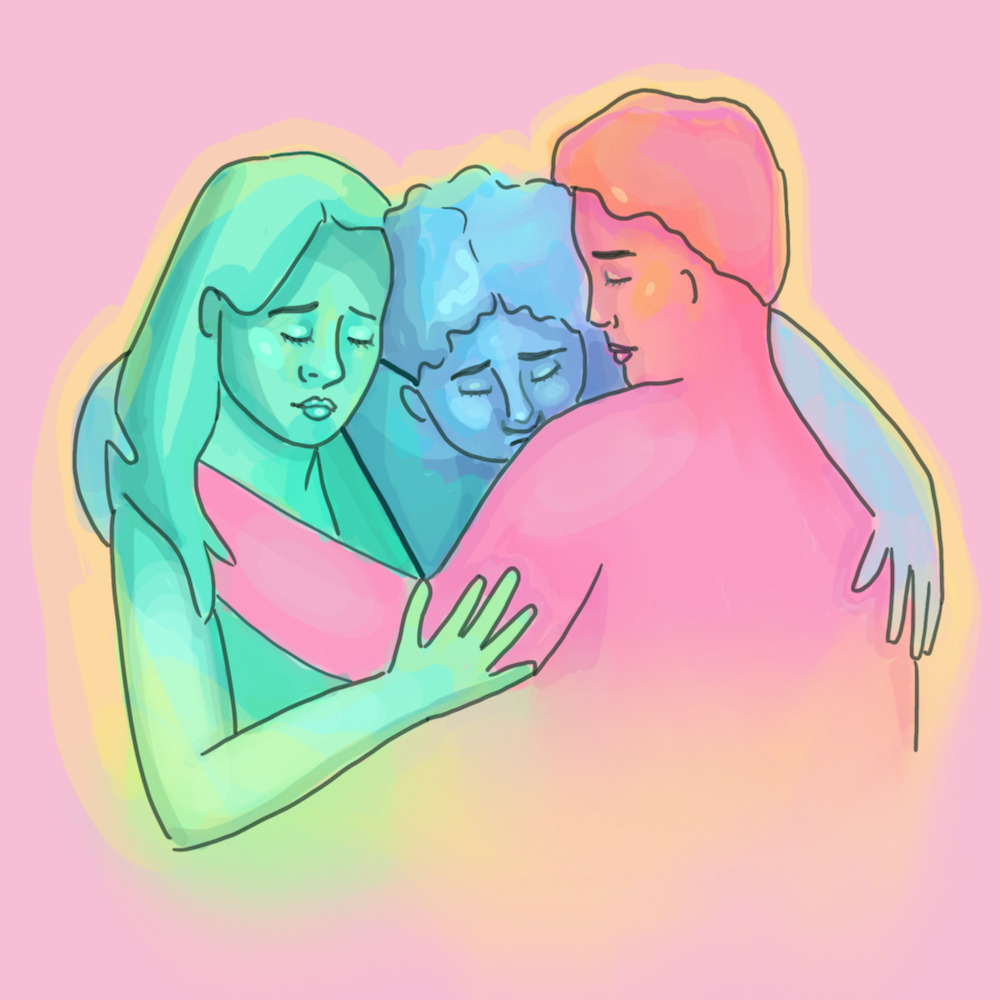Content warning: This article contains discussions of death, suicide, grief and domestic violence.
It has been two years since I walked on a college campus filled with students. I left a very different person than I am today. Everyone did. And how could we not? The infrastructure of our public health system was shaken to its core, and hundreds of thousands of people died from the coronavirus. As I walk through campus today, I feel somewhat whole again, as I see smiling faces and new fashion trends that confirm I am old and uncool. It is easy to forget that behind each of these smiles, is a challenging past year. Behind each smile is the reality that we are not the same people we were before the pandemic.
We evolved through the past two years. During the early days of the pandemic, I loved how my neighborhood developed such a strong sense of community. Every night at 7 p.m., everyone would emerge from their doors, smile at each other from afar and bang pots and pans in honor of all the essential workers keeping NYC running. I’m sure the essential workers loved the racket. But seriously, I felt emotionally strengthened. And it felt like we all had each other’s backs: food delivery drives were set up for the elderly and, across the nation, we made the transition to online learning.
I don’t know when exactly the nightly cacophony ended, but it marked the beginning of a scary time. It signaled an end to our positive collective pendulum swing. After we adjusted to some of the changes, the gravity of the situation set in. Cue climate catastrophe, spikes in domestic and child abuse, a literal insurrection and the police killing of George Floyd. On my daily commute to work, I passed a refrigerated truck outside a funeral home where extra bodies were held. Any physical or mental sense of safety or security I seemed to have had been stripped away. Many folks lost their jobs and sources of income and security. Many lost health care. Many lost loved ones. For those that followed state and Centers for Disease Control and Prevention (CDC) guidelines, this was all processed in isolation.
Throughout all of this turmoil, I stayed afloat. And then, in January, nearly a year into the pandemic, one of my close friends took his life. So much pain and disorientation followed. I was mad. Mad at him, mad at myself, mad at the government, mad at all of the circumstances that led to such a painful and finite act of control. I felt utterly alone. All I wanted was to be with friends who knew him but, in the interest of public health, we stayed apart. I felt like my grieving process had been shortchanged. No funeral, no memorial. No goodbyes. Instead, a gaping sadness developed as every day I grew older than he would ever be. This was hard. And often still is.
What happened to my friend was not an isolated event. Our mental health individually and collectively suffered so much during the past two years. For those who miraculously came out unscathed, send me the phone number to your therapist because that’s honestly incredible. As we coalesce back on campus, it is our job to reconcile the challenges we have all been through. As we rebuild our communities, on campus and at home, we must hold each other accountable to recognizing our individual struggles and humanity. The hard truth is, our community faltered during the pandemic. It hit us suddenly and wickedly, and we were not ready. We were discouraged and exhausted. We must learn from this experience, and learn to be there for each other going forward — even when we can’t physically be there. We must prepare our communities for the next global catastrophe that is thrown our way. Beyond our preparation, we must look to those around us. Now more than ever, we must support each other and be kind to one another. There is no room for cruelty — the implications are too great.
As I walk on campus today, although the faces I see are different, they are living, breathing hope. We have all gone through something hard, and we have endured. Each one of us has suffered, and many of us continue to do so. Much of the last year and a half have been out of our control, but our ability to support and be kind to one another is actionable. What that looks like will vary from person to person, and from day to day. Our kindness can be big, beautiful and bountiful. Our kindness can also be as small as holding the library door open for a stranger, sending a text to a friend you haven’t spoken to in a while or thanking our campus’ food service workers, facilities crew and staff. Our kindness can be calling others in, and actively reaching out to those who are left out. Our kindness must be actualized with patience and empathy. And on the days when everything feels too overwhelming, we must be kind to ourselves.
![]()




































